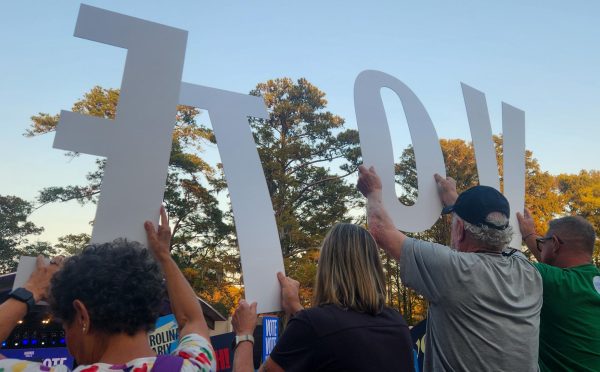Legislature poses threat of renaming historically black colleges and universities in NC
As some of the last institutions dedicated solely to African Americans, historically black colleges and universities are an aspect of the diversity of culture and heritage in North Carolina.
Therefore, when the talk of renaming these schools became a topic of discussion in the legislative board of leadership, concern was immediately heightened.
Legislators have justified this transformation by directing it towards an economical standpoint, lowering tuition to schools such as North Carolina A&T, North Carolina Central, Elizabeth City State, Fayetteville State, and Winston-Salem State, and at the same time increasing difficulty of admission standards.
While there may not be any blatant hidden agenda beneath these changes, leaders, administrators and educators may be letting money get the best of them.
“This is an economically driven change,” said Zackary King, the student Board of Governors’ member and current UNC Association of Student Government president. “The economic decision isn’t always the right decision and [their motives] blind them to the racial impact that these decisions have.”
While some may think that a name is just a name, the cultural deficits that will accompany this transformation may be irreversible.
“We are in a time where preservation of the heritage of our HBCUs is imperative to the success of our system,” said Madeline Finnegan. Finnegan is a student at North Carolina State University and will be the ASG President next term.
Both Finnegan and King mentioned the importance of the names of these institutions when regarding alumni connections. Universities like Fayetteville State have built an active alumni base around FSU, not UNC Fayetteville, according to Finnegan and King.
Branding HBCUs under the UNC umbrella may be economically beneficial, but there is more than meets the eye.
King, who works closely with all of the student body presidents of NC’s HBCUs, ensures that this alteration is viewed negatively by all of the campuses.
And while renaming HBCUs has not become a topic of discussion in the Board of Governors just yet, King stands firmly in his opposition.
“If there were concrete changes, we would mobilize as an association, standing side by side with HBCUs, specifically Fayetteville State,” said King.
“Changing the names of our smaller, historically black colleges and universities in our system are deeply troubling,” said Finnegan.
Both King and Finnegan urge legislatures to open their eyes and ears to the upset that this cultural and racial oppression will cause.
“Until something happens, we remain calm, but stay vigilant,” said the ASG president. If changes become eminent, however, students and leaders across the state are ready to come together and combat this decision.
King insists that the most effective way to battle this modification is to educate legislatures, leaders and educators about the “history and pride behind HBCUs, so they understand the effects that these changes will have on those that take pride in their schools.”
Imagine the student and alumni reaction if schools like Appalachian State University or Western Carolina University were suddenly renamed UNC-Appalachian or UNC-Western.
It begs the question, why are the institutions that make NC so diverse the only ones being targeted for such a drastic change?











